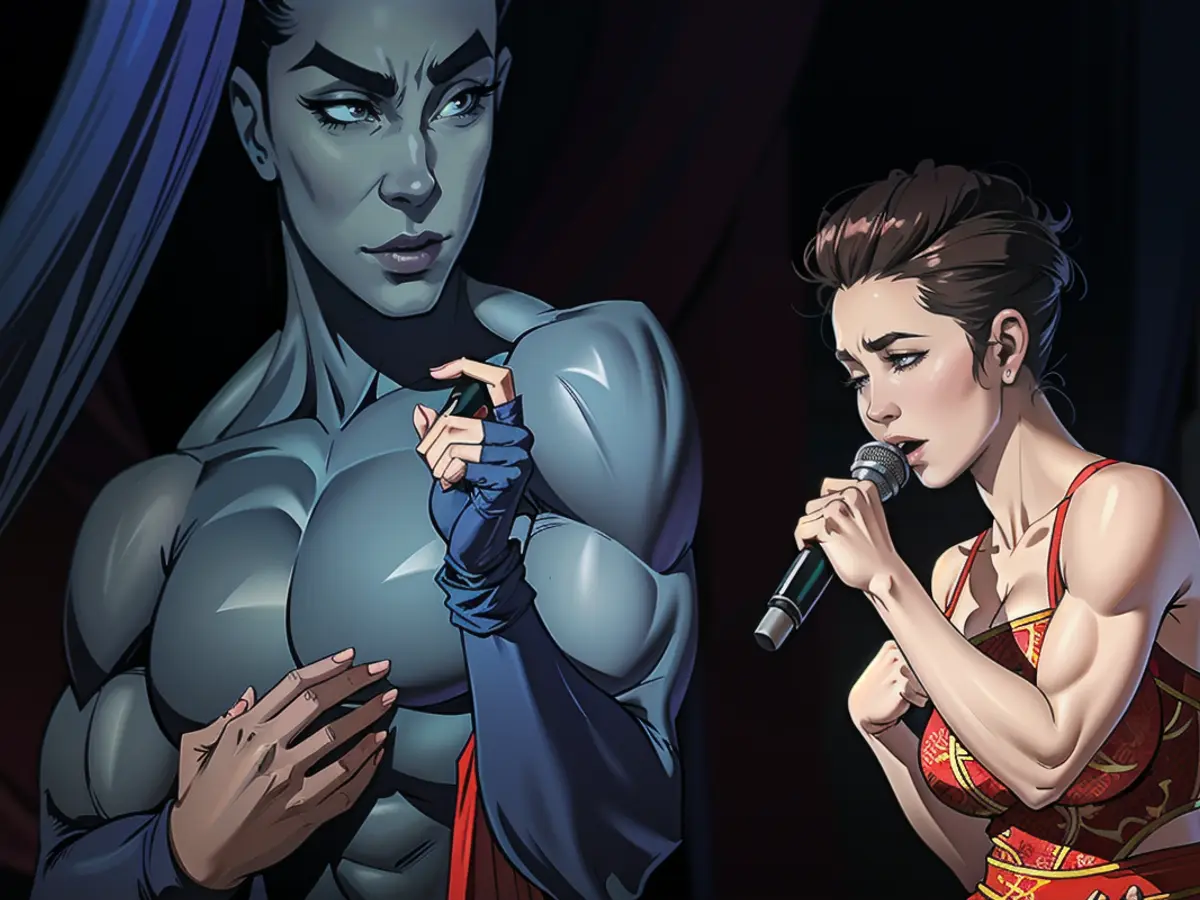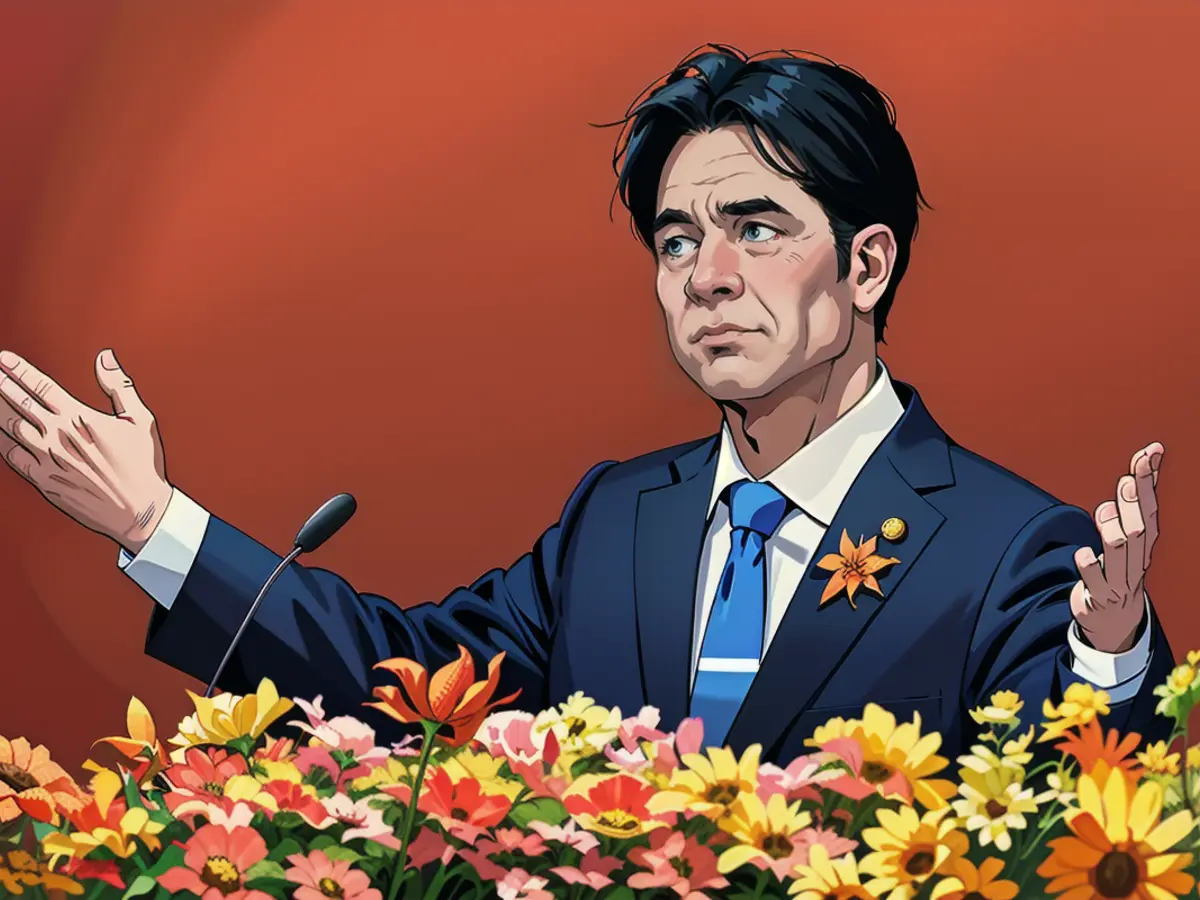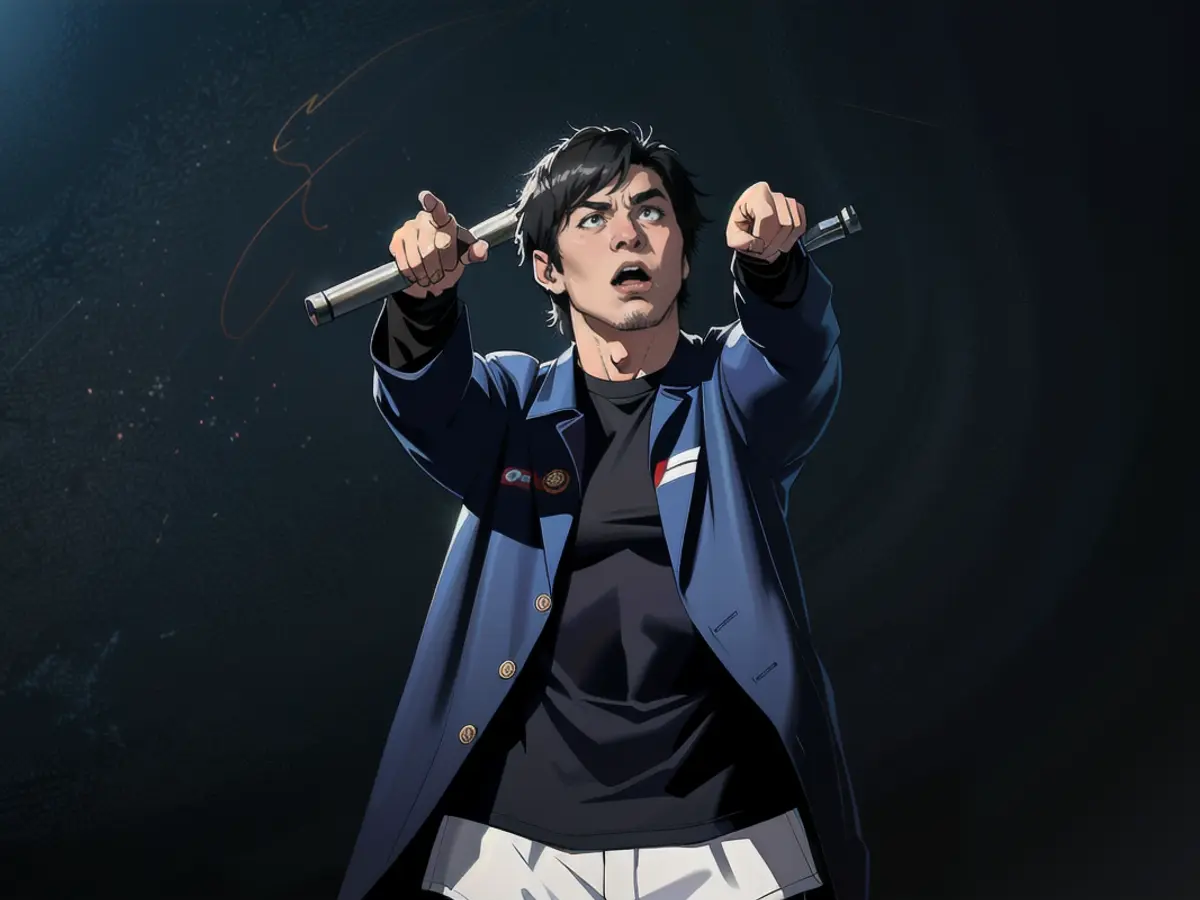Taiwanese celebrities caught in the middle of political conflict as tensions with China escalate.
For the past two days, a self-governed democracy was surrounded by Chinese warships and fighter jets in the largest military exercises in over a year.
Speaking to the massive crowd at the packed Bird's Nest stadium, Mayday's lead singer Ashin didn't mention the hostility. However, his words since have sparked just as much controversy.
"We Chinese people have to eat roast duck when we're in Beijing!" he exclaimed.
This seemingly innocent travel tip was loaded with political meaning. Ashin - one of Taiwan's most beloved musicians - had identified himself as Chinese instead of Taiwanese.
The audience loved it, but people back home were furious - reflecting the delicate situation faced by Taiwanese artists with a following on the mainland.
More and more Taiwanese individuals, particularly the younger generation, view themselves as distinctly Taiwanese. They have no interest in being part of China, which continues to claim the self-ruled island as its territory despite never having controlled it.
Even as Beijing has grown more aggressive towards Taiwan, there is still cultural overlap. Both sides use Mandarin, leading musicians from Taiwan (with a population of 23 million) to aim for the lucrative market of 1.4 billion across the strait.
With Beijing and Taipei drifting further apart politically, these artists face mounting pressure to agree with Beijing's political stance. The same night Mayday performed in Beijing, Taiwanese pop queen Jolin Tsai claimed an audience in the southern city of Nanchang was the most passionate, which some fans saw as a declaration of kinship.
On Chinese social media platform Weibo, numerous Taiwanese actors, musicians, and celebrities shared a state media post emphasizing Beijing's sovereignty over the island.
"'Taiwan independence' is a dead end, and the reunification of the motherland is unstoppable!" said broadcaster CCTV in the post. It has been retweeted almost 18 million times since its publication.
On the popular review site Douban, users compiled a list of nearly 100 Taiwanese celebrities, indicating whether each shared the post.
Critics accused Jolin Tsai of not standing up for Taiwan, despite her apparent celebrations of shared Chinese identity on stage. A comment with 14,000 upvotes called for her concerts in China to be shut down because she "had never spoken out directly."
CCTV publicly supported Taiwanese celebrities who shared its post, sharing screenshots of 36 similar reposts. This increased resentment against those who didn't endorse it.

"Those who didn't endorse and stand up, can you stay away from making money on the mainland?" demanded a top comment with 55,000 upvotes.
Dr. Lin Chen-yu, a lecturer focusing on China's censorship of Taiwanese music at Cardiff University, explained the problem for Taiwanese artists.
"Both the government and private sectors are increasingly reacting to and engaging with digital nationalism," she said. "As a result, management or touring contracts for activities in China often include clauses preventing celebrities from making statements against the Chinese state's ideologies."
Taiwanese artists deemed to have crossed Beijing's political boundaries are often barred from the Chinese market, with their names and works swiftly deleted from television and online platforms.
"Musicians' work can be easily removed from streaming platforms (in China), often automatically, if their names become keywords for censors on these platforms and media," Lin added.
Resentment in Taiwan
Mayday seemingly avoided offending Chinese officials during their Beijing concert, but they didn't escape anger from their own fans.
For years, Taiwanese people have grown attached to the band's cheerful, pop-influenced rock tunes about youthful optimism and heartbreak. The group, which has been together for over 25 years, is sometimes referred to as "the Asian Beatles."
However, many fans now express their deep disappointment.
"As much as I used to like you, now I'm just as disappointed," a comment on Mayday's official Facebook page said.
"I'm Taiwanese. Goodbye," a fan posted on Ashin's Facebook page.
CNN contacted B'in Music, Mayday's record company, for a response.

On Monday, Taiwan's Mainland Affairs Council hit back at Beijing, saying that such political manipulation would not win the support of Taiwanese individuals.
"These political maneuvers will only deepen Taiwanese society's resentment towards the Chinese Communist regime," council said in a statement.
Taiwanese artists voiced their opinions on China's CCTV unification post during a time when China conducted its largest military exercise around the island in more than a year. The Chinese military regarded the drills as punishment for Taiwan's so-called "independence actions" and aimed to test their capability to "seize power."
The military moves stemmed from the inauguration of Taiwan's new President, Lai Ching-te, who is disliked by Beijing for advocating Taiwan's sovereignty and unique identity.
When Taiwanese artists faced criticism for their comments and retweets, Lai took a more accommodating stance.
"This isn't the first or last time that Taiwanese artists are faced with Political quandaries in China," Lai remarked.
"What these artists share through their words is one thing, but what's more significant is what they genuinely feel inside," he added.
Beijing authorities contested Lai's statement that the artists were coerced.
Zhu Fenglian, a spokesperson for the Taiwan Affairs Office, argued that those Taiwanese celebrities who spread the Weibo "reunification" message did so to convey that individuals on either side of the Taiwan Strait are "both Chinese."
"These are natural expressions of their inner feelings," Zhu said.
Lin, a professor at Cardiff University, noted that Taiwanese performers operating in the Chinese market would continue to face a challenging situation.
"Nevertheless," she continued, "it's high time for the Taiwanese industry to revisit the implications for our society. The distribution of these works incurs a cost: a sizable decline in liberty and independence."

Read also:
In the world of Taiwanese arts, artists often face pressure to align with China's political stance due to the lucrative market across the strait. The style of expression in Mandarin-speaking Taiwanese music is a testament to the cultural overlap between the two sides.
As tensions between Beijing and Taipei escalate, the artistic community finds themselves caught in the middle, forced to balance their creative expression with political considerations.








